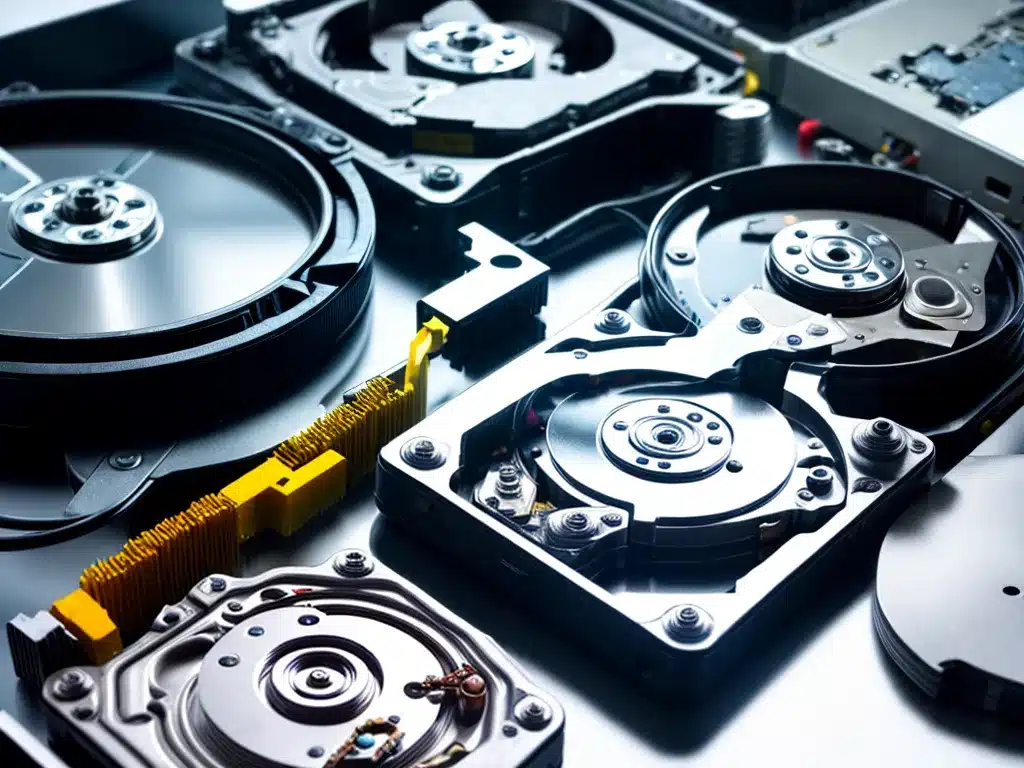
In 2024, as our reliance on digital data continues to grow, data recovery services remain an important tool for restoring lost or corrupted files. But with varying levels of service and a wide range of pricing, how can you know if using a data recovery service is worth the investment? In this article, I’ll examine the key factors to consider when deciding whether to use a data recovery service.
What causes data loss that requires recovery services?
Data loss can happen for many reasons:
-
Accidental deletion – Files or entire storage devices can be mistakenly deleted or formatted.
-
Hardware failure – Hard drives and storage devices can suffer electrical or mechanical breakdowns.
-
Natural disasters – Floods, fires, earthquakes, and other events can damage storage devices.
-
Malware or viruses – Malicious programs can encrypt or corrupt files.
-
Logical damage – Software bugs, corrupted applications, or database errors can render data inaccessible.
No storage medium lasts forever, so even routine breakdowns can cause data loss. When critical or irreplaceable data is involved, data recovery services provide the best chance for restoring access.
What can data recovery services do?
Data recovery experts use specialized techniques and tools to extract data from damaged or inaccessible storage devices. Here are some examples of what may be possible:
- Retrieve data from formatted, corrupted, or deleted partitions
- Recover data from failed, crashed, or damaged hard drives
- Extract data from unmountable USB flash drives, SD cards, etc.
- Restore data lost due to software issues, bugs, or viruses
- Retrieve data from RAID arrays suffering from multiple drive failures
- Salvage data from fire/flood/earthquake damaged devices
However, there are limits to what even the best recovery specialists can achieve. Severely damaged hardware or completely overwritten data may be unrecoverable.
What factors influence the cost of data recovery?
Data recovery services range widely in price, from $100 to $3000+ per recovery attempt. Here are some key variables that affect pricing:
-
Type of damage – Logical recoveries tend to cost less than those requiring hardware repair.
-
Level of service – Basic DIY software tools are cheaper than professional in-lab recoveries.
-
Speed – Emergency or expedited services cost more.
-
Security – Meeting legal/regulatory requirements like HIPAA adds expense.
-
Clean room – A dust-free lab environment raises prices but improves recovery success.
-
No fix, no fee – Some providers only charge if data is recovered.
-
Data value – High-priority or business-critical data justifies premium services.
Understanding these factors helps match the service level to the situation.
Is DIY data recovery realistic?
For technically inclined individuals dealing with logical recoveries, DIY methods using data recovery software tools may be sufficient. This can provide an affordable option for recovering deleted files or partitions.
However, DIY has serious limitations:
- Requires technical skill and knowledge
- Typically handles only logical damage, not hardware issues
- Lower success rate compared to professionals
- Risks further data loss if done improperly
So while it offers a low-cost attempt, DIY lacks the experience, controlled environment, and specialized tools the pros use. For business or high-value data, DIY penny-pinching is a risky bet.
How can you choose a reputable data recovery provider?
Since your irreplaceable data is literally in their hands, it’s important to select a trustworthy recovery firm. Watch for these positive signs:
- Experience – Years or decades in the industry, not just a pop-up shop.
- Expertise – Certified engineers, not just software jockeys.
- Facilities – Clean room environment for hardware procedures.
- Security – Robust protocols and certification like HIPAA compliance.
- Pricing – Flexible tiered pricing aligned to value and likelihood of success.
- Customer service – Responsive and compassionate interactions.
- Reviews – Consistently positive customer reviews over years of service.
Avoid firms that seem evasive, guarantee 100% recovery, or ask for full payment upfront. Legitimate providers set proper expectations and welcome questions.
Weighing the value proposition of data recovery
Ultimately, deciding if professional data recovery is worth the investment requires honestly assessing the value of your lost data. Consider:
- Is the data absolutely critical and irreplaceable?
- How severely is it damaged? Can you recover it yourself?
- What is the impact if the data remains inaccessible? Lost revenue? Legal liability?
- Does the data’s value justify a professional recovery attempt, even at substantial cost?
If reliably restoring access to your data is truly critical, the money will be well spent. But if you just want to take a shot at nice-to-have data, DIY may be better. Evaluate each situation thoughtfully.
Conclusion
Modern life leaves us reliant on digital data. When hardware fails or human errors occur, data recovery services provide the last line of defense. While cost is always a factor, choosing recovery specialists with experience, capabilities, security, and integrity is the safest way to maximize the chances of restoring your most valuable data. When success matters most, the investment is usually well worth it.












